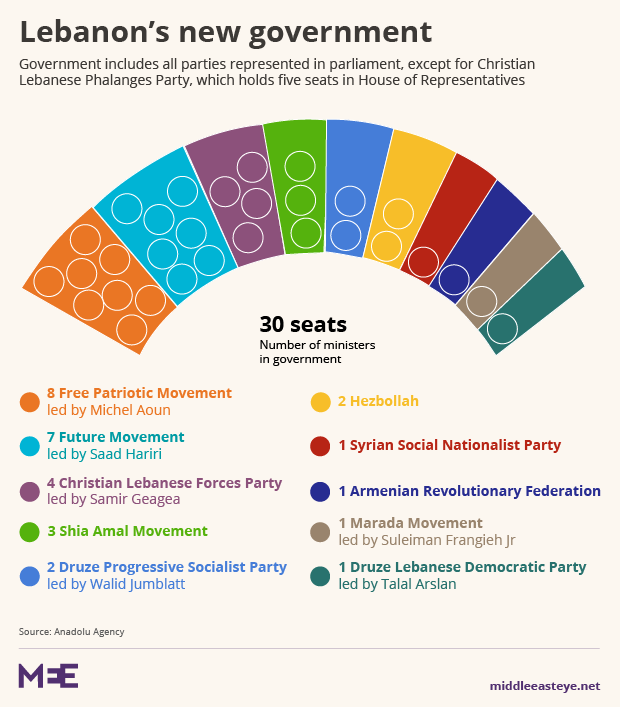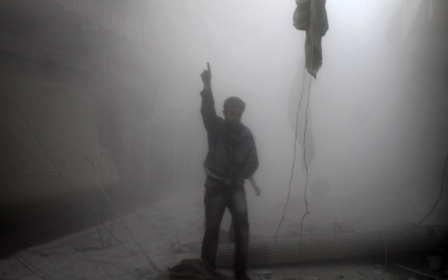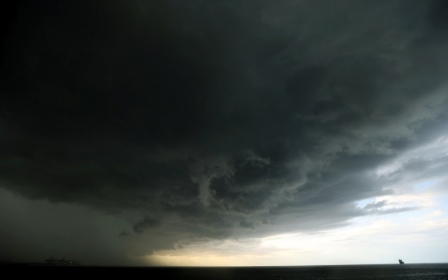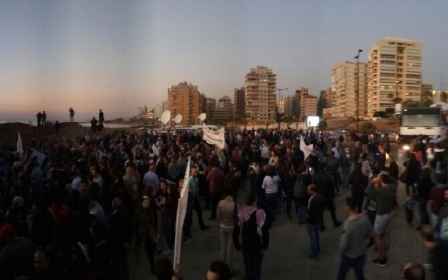And finally... Lebanon has a government after parliament gives approval
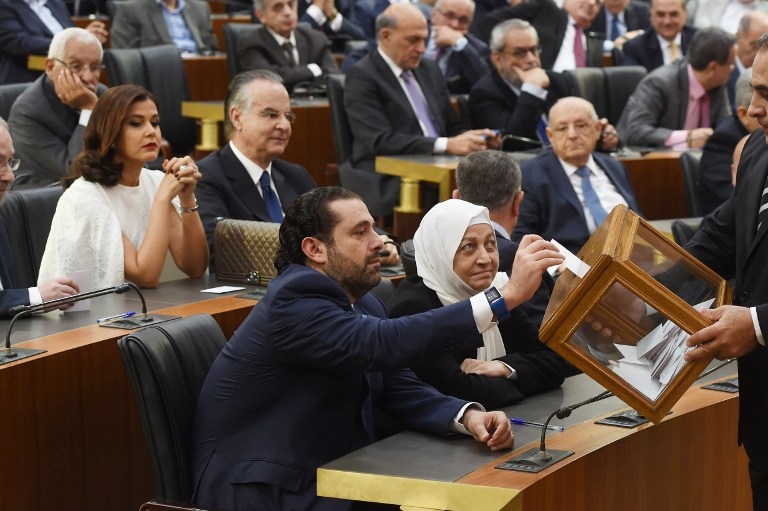
Lebanon's new prime minister, Saad al-Hariri, has won parliamentary approval for his government following a confidence vote on Wednesday, with 87 deputies voting in favour out of the 92 in attendance.
Four deputies voted against. The only abstention came by way of Emad al-Hout, the sole deputy for the Jamaa Islamiyya party, which is seen as Lebanon’s branch of the Muslim Brotherhood.
Reflecting Lebanon's fragile stability, the Lebanese army reported an explosion on Wednesday morning that killed a local official in al-Ain, a town in the northern Bekaa valley region.
"Around 6:30 this morning, a bomb exploded in a car type van in al-Ain town - Baalbek, with deputy municipality head, Khalid Ali al-Houri, on board, accompanied by Mahmoud Kassem al-Houri," read an army statement carried by Lebanon's National News Agency.
"The explosion killed the former and severely injured the latter who was transferred to a nearby hospital for treatment," said the statement. The army imposed a security cordon around the site, while the military police took over the investigation into the incident.
Notable no-shows
Of Lebanon’s 126 deputies, 34 did not show up for the confidence vote – with a few notable personalities among them.
One absentee was Walid Jumblatt, the veteran leader of the largely Druze Progressive Socialist Party, and son of Kamal Jumblatt, a major figure in the country during the Lebanese civil war who led anti-government forces that opposed Syria’s intervention in the country.
The Druze make up around 5 percent of Lebanon’s religiously diverse population.
Another absentee was the head of the Maronite Christian Marada Movement, Suleiman Frangieh Jr, a childhood friend of Syrian President Bashar al-Assad, and grandson of Lebanon’s former president and warlord Suleiman Frangieh.
Both Jumblatt and Frangieh Jr's parties have ministers in Hariri’s government.
Hariri is himself the son of former Lebanese Prime Minister Rafik Hariri, who was assassinated in 2005, in an attack widely believed to be by pro-Syrian factions in Lebanon.
Policies
It took just under two and a half years for Lebanon to elect President Michel Aoun, whose position is reserved for Maronite Christians, and 48 days for Hariri to form a government to put forward to parliament.
The vote took place after a brief debate in parliament, where deputies raised questions about the government’s policy statements and Hariri's response.
Hariri also saluted the army and security forces, and stressed that “the government will follow up on the issue of military prisoners in order to return [them] to their families”.
The Lebanese prime minister, whose position is reserved for Sunnis in Lebanon’s sectarian power-sharing model, also spoke of “the need for the adoption of a new parliamentary electoral law”.
Hariri also said he would pursue a gender quota in parliament to rebalance the composition of the male-dominated assembly. There are currently only four women in Parliament and one minister. Early in December, Hariri created a secretary of state for women’s rights but he put a man in charge.
Commitment to tribunal
Hariri also raised the issue of Lebanon’s commitment to applying Lebanese criminal law to the international tribunal investigating and prosecuting those responsible for the assassination of his father.
Hariri said it was paramount Lebanon remain part of the tribunal, which was established in 2009, as it was “set up on the principle of achieving justice”.
With regards to the oil sector, he said the government would issue a series of decrees regarding private sector regulation, taxes, licensing – as well as setting up a sovereign wealth fund for the first time.
On the hot-button issues of accountability and corruption, Hariri said his government would strengthen judicial independence and that for the first time there will be an anti-corruption minister.
He added, however, that “the reality of fighting corruption requires the state machinery and an end to relying on paper and pens”.
Hariri said that “Lebanon would not be governed except through consensus, and this issue is not subject to regional equations but the risks that we have taken as political parties to come together.”
Parliamentary spat
The vote was supposed to take place on Tuesday, but Parliament Speaker Nabih Berri, whose position is reserved for the Shia, delayed it by a day to ensure the largest possible attendance of deputies.
Parliament did have a brief debate yesterday however.
Although the debate was meant to discuss the granting of parliamentary confidence in Hariri’s government, a spat between two Lebanese deputies went viral on Arabic social media.
Translation: “The (parliamentary) sessions to grant confidence (in the government) is a comic TV drama the Lebanese people wait for every two years”
Khaled al-Daher and Riyad Rahal crossed swords, a not uncommon event in Lebanon's raucous parliament, with the latter saying al-Daher was bitter about not getting a ministerial post.
Curses and insults were thrown in an exchange filmed and uploaded to YouTube – with an aggrieved al-Daher at one point saying “screw you, stupid!”
Video of the heated exchange
Both deputies are from the same political coalition, the anti-Assad March 14 Alliance – which is led by Hariri.
New MEE newsletter: Jerusalem Dispatch
Sign up to get the latest insights and analysis on Israel-Palestine, alongside Turkey Unpacked and other MEE newsletters
Middle East Eye delivers independent and unrivalled coverage and analysis of the Middle East, North Africa and beyond. To learn more about republishing this content and the associated fees, please fill out this form. More about MEE can be found here.


